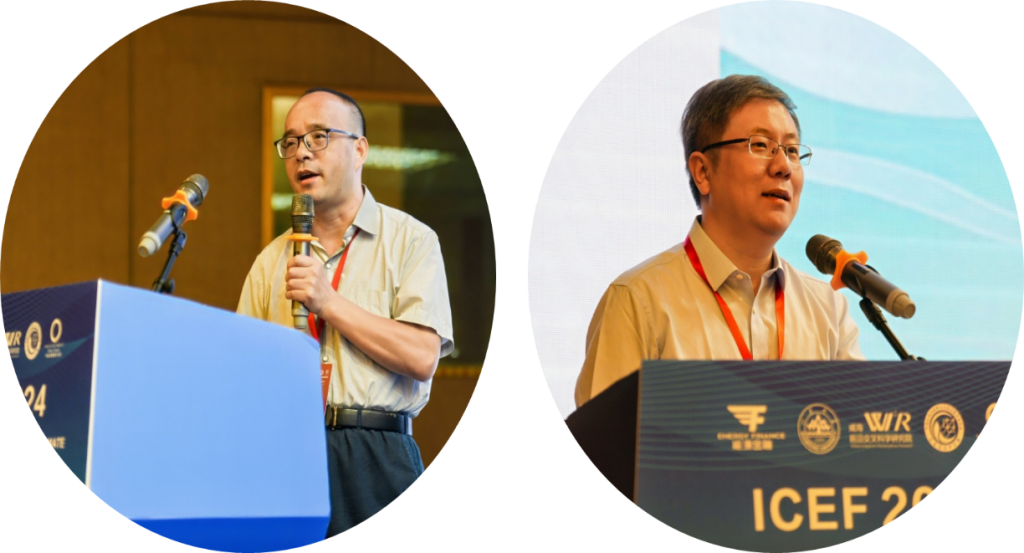
In the face of the severe global climate change situation, climate and energy finance has become a crucial topic for advancing sustainable development. As global temperatures rise and extreme weather events become more frequent, governments, businesses, and various sectors of society have recognized the urgency of mitigating climate change, driving energy transitions, and promoting a low-carbon economy through financial mechanisms.
On the morning of June 1, the 2024 International Conference on Climate and Energy Finance (ICEF2024) successfully opened in Weihai. The event was hosted by the Energy Finance Committee of the International Energy Transition Society and the Society for the Studies of Climate Finance, Chinese Society of Optimization, Overall Planning, and Economical Mathematics, and organized by the Frontier Institute of Interdisciplinary Sciences at Shandong University, Weihai. The conference was themed “Challenges and Opportunities for Energy and Climate Finance in the Global South,” with over 400 experts and scholars from more than 100 prestigious universities and research institutions, including the Chinese Academy of Sciences, Peking University, Tsinghua University, Beihang University, Fudan University, Renmin University of China, Hong Kong University of Science and Technology, City University of Hong Kong, Macau University of Science and Technology, National University of Singapore, University of Bristol (UK), and Kyushu University (Japan). They gathered to discuss new challenges, topics, opportunities, and outcomes related to the development of climate and energy finance in the Global South under the context of climate change.
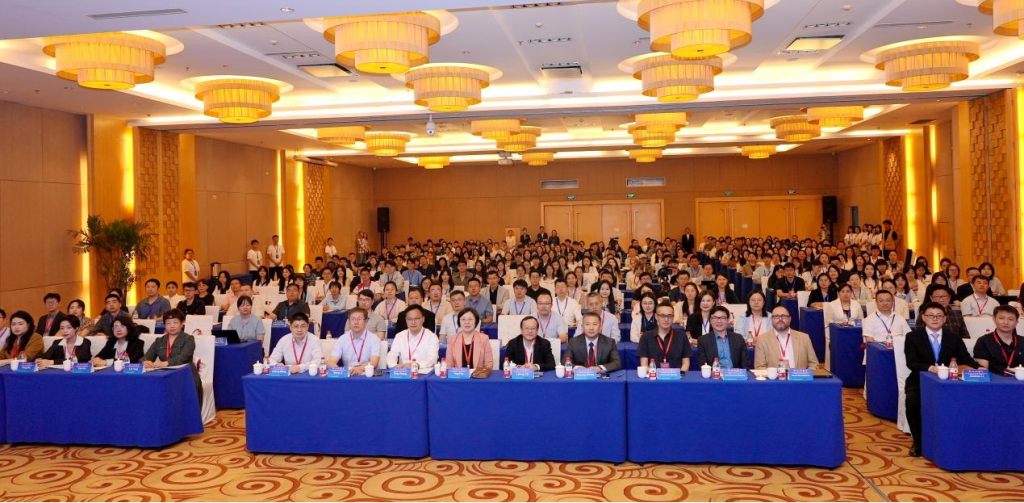
Lidong Xia, Party Committee member and Vice President of Shandong University (Weihai), and Dayong Zhang, Chairman of the Society for the Studies of Climate Finance, Chinese Society of Optimization, Overall Planning, and Economical Mathematics, attended the opening ceremony of the conference and delivered speeches. The ceremony was chaired by Jiashuo Li, Head of Academic Research at the Frontier Institute of Interdisciplinary Sciences, Shandong University (Weihai); Hancheng Dai, Director of the Department of Environmental Management and Head of the Energy, Environment, and Economic Policy Research Office at Peking University; and Hui Wang, Deputy Director of the Institute of Energy Economics and Policy at China University of Petroleum (East China).



In the keynote expert session, Professor Ying Fan from Beihang University introduced the market mechanisms of low-carbon governance, revealing the carbon emission trading system’s effectiveness in reducing emissions. She also analyzed the impact of different mechanism designs and market power on cost-efficiency and social welfare, along with the intertemporal allocation mechanism of emission permits.
Professor David Broadstock from the National University of Singapore discussed the long-term challenges of cooperation, reallocation, and pricing of externalities during the transition. He pointed out that while some governments have started to focus on the financing challenges of energy transitions, international investors still face significant difficulties in evaluating and comparing these challenges.
Professor Bing Zhang from Nanjing University of Finance and Economics introduced the application of machine learning in the precise targeting of environmental law enforcement. His research demonstrated that machine learning significantly improves the violation detection rate, saves inspection resources, and can overcome the drawbacks of data-driven targeting by combining random and targeted inspections.
Professor Duc Khuong Nguyen from EMLV Business School in France explored the common driving factors of commodity futures, discussing the predictive power of equity returns, financial hedgers, and macroeconomic uncertainty on commodity futures returns at different stages.

Subsequently, Professor David Broadstock from the National University of Singapore, Professor Shunsuke Managi from Kyushu University in Japan, Professor Duc Khuong Nguyen from EMLV Business School in France, Yang Xia, editor of Nature magazine, Zuo Luo, editor of the Green and Low-Carbon Economy journal, and Professor Dayong Zhang, Chairman of the Climate Finance Research Subcommittee, participated in the Editors’ Forum. They explored the key issues, development trends, and challenges in climate and energy finance. The panel also discussed the significance of publishing academic papers and highlighted important considerations for submitting interdisciplinary research. In addition, they shared valuable experiences and best practices with their peers in the field.
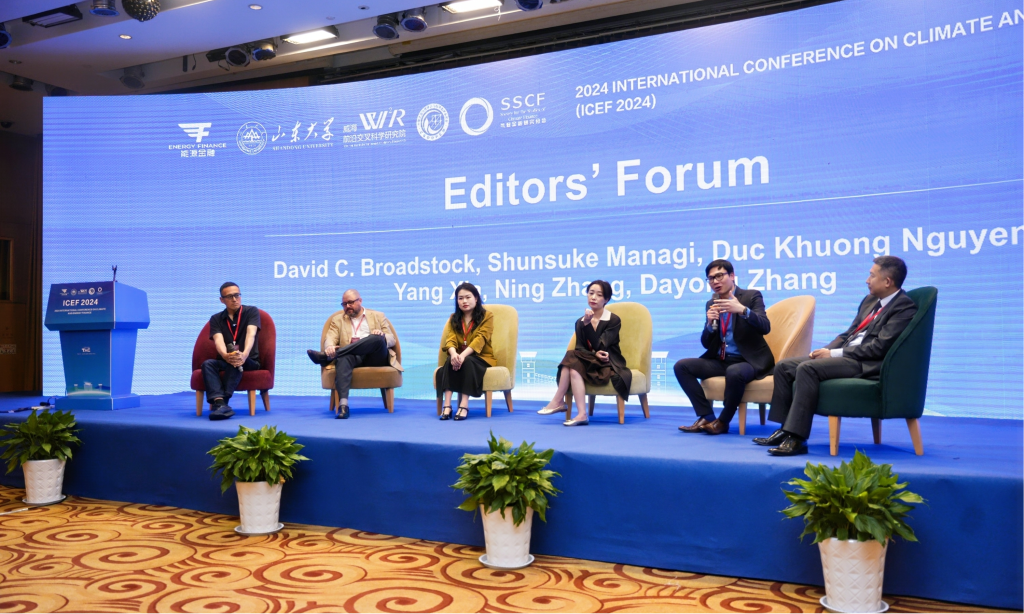
The ICEF conference featured 48 thematic sub-forums, covering topics such as artificial intelligence and digital transformation, carbon neutrality, climate change, energy transition, pollution control, sustainable development goals (SDGs), environmental, social, and governance (ESG), green finance, and environmental regulations. These discussions aimed to create a high-level platform for international academic exchange in the field of climate and energy finance, fostering the development of this discipline both domestically and internationally. The event also sought to enhance the representation and voice of the Global South in global governance, exploring new approaches and practices for implementing “South-South Cooperation,” while providing new momentum and support for China’s role in addressing global climate change and participating in global climate governance.
During the conference, the Society for the Studies of Climate Finance held its third meeting of the first council. Chairman Dayong Zhang reviewed the Subcommittee’s progress over the past year. Secretary-General Yan Xia presided over the election of new council members. Following the General Association’s rules for elections and considering members’ contributions to the Subcommittee, the attending council members unanimously approved the election of 20 new members, including Professor Jiashuo Li, as well as the promotion of four members, including Professor Xuemei Jiang, to executive council members. Vice chairpersons Qunwei Wang and Yudong Wang shared their visions for the Subcommittee’s future development, and many members enthusiastically provided suggestions for the Subcommittee’s activities in 2025. The meeting also approved the decision for the 2025 ICEF conference to be hosted by the Institute of Finance at Guangzhou University.
Finally, Professor Ying Fan from the Subcommittee’s Expert Advisory Committee delivered a concluding speech. She highly praised the Climate Finance Subcommittee for its vibrant and unique activities, which have attracted an increasing number of young scholars. She also encouraged the Subcommittee to continue its efforts in advancing the development of climate and energy finance as a cutting-edge, interdisciplinary field in China.
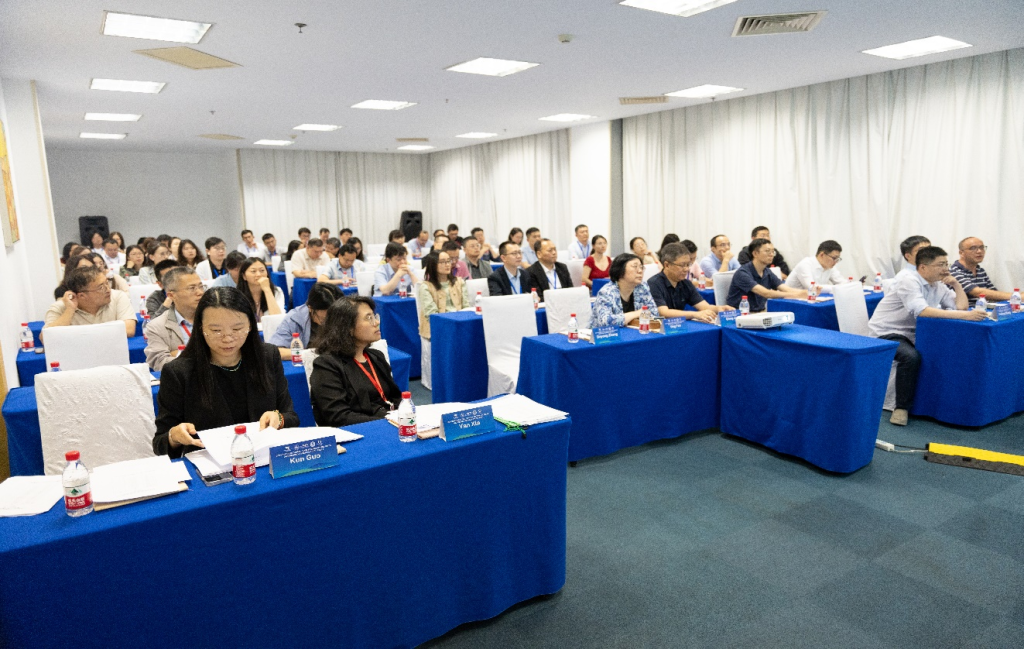
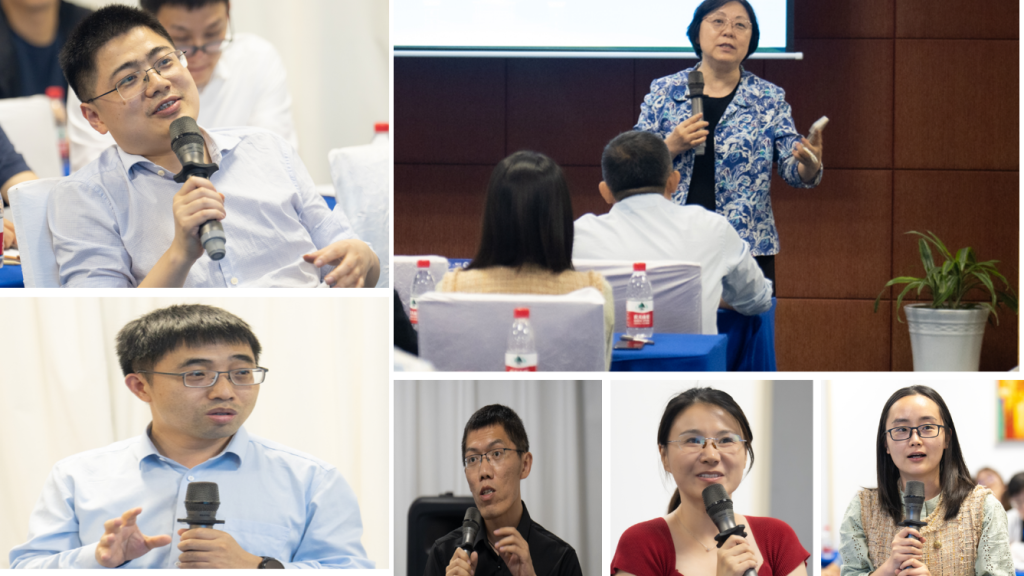
The closing ceremony was chaired by Qiang Ji, Co-Chair of the conference and Researcher at the Institutes of Science and Development, Chinese Academy of Sciences. This year’s conference received over 260 submissions from both domestic and international scholars, with 220 papers being selected for presentation. After a rigorous review process conducted by nearly 20 top experts and professors from around the world, eight outstanding papers were selected for awards.
Professor Qunwei Wang, Chair of the ICEF2024 Academic Committee, announced the list of the best conference papers and presented certificates to the award winners.
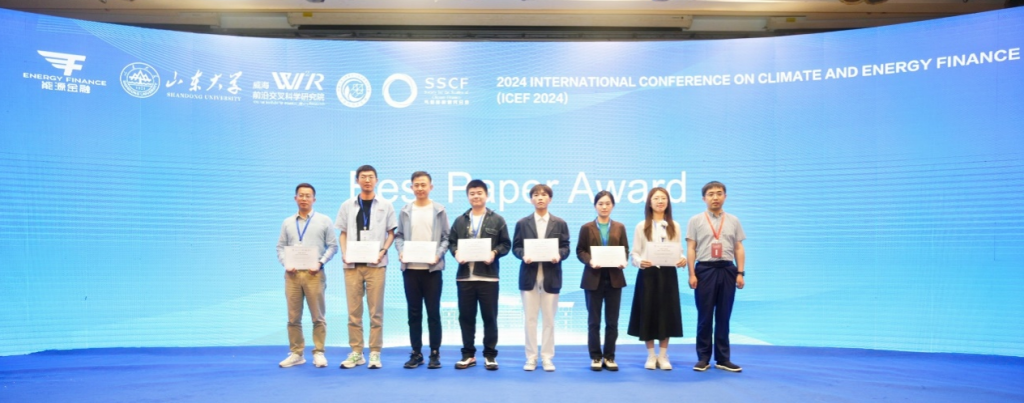
Professor Zhenghui Li, Dean of the Institute of Finance at Guangzhou University, provided a detailed introduction to the campus development, scientific research, and geographical environment of the institute to the conference attendees. He expressed his enthusiastic anticipation for more experts from around the world to gather in Guangzhou next year, aiming to collaboratively advance the development of climate and energy finance disciplines in China.
At the closing ceremony, Conference Chairman Qiang Ji expressed his heartfelt gratitude to the hosting organization—the Frontier Institute of Interdisciplinary Sciences at Shandong University (Weihai). He highly praised the staff for their meticulous planning and selfless dedication, which contributed to the successful completion of the conference. Ji emphasized that this conference brought together outstanding experts and scholars from around the world, whose active participation infused the event with continuous vitality. These experts and scholars collectively generated a series of cutting-edge and insightful scientific outcomes, and he looked forward to these achievements continuing to lead the industry forward and jointly promote the process of global green transformation and sustainable development.
